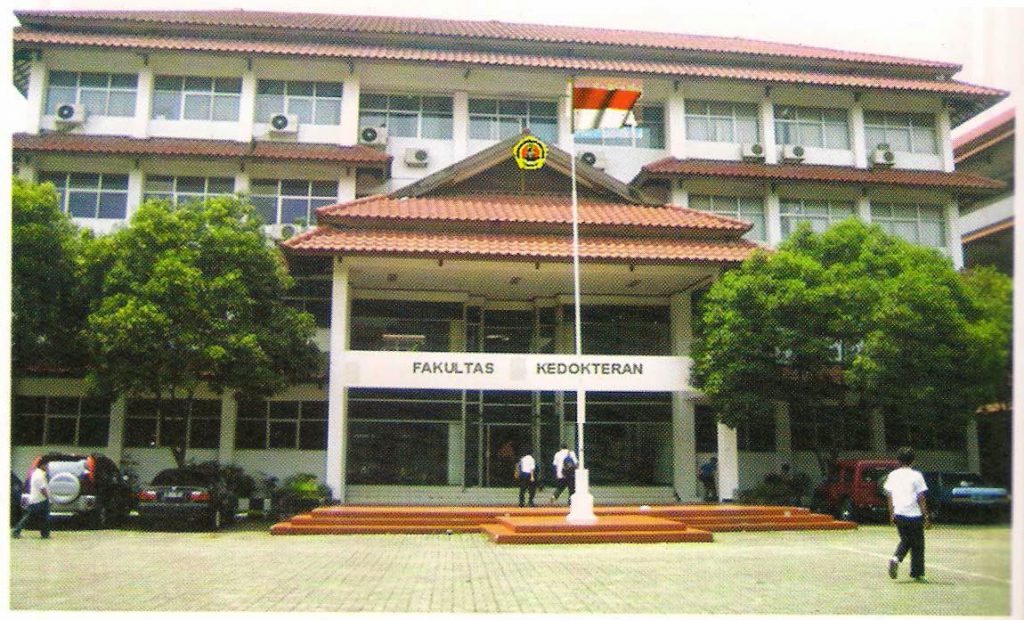
[su_custom_gallery source=”media: 14734″ limit=”20″ link=”none” target=”self” width=”520″ height=”642″ title=”hover” class=””]
UPN’s Faculty of Medicine has begun implementing a new medical education curriculum based on the Medical Education Core Curriculum (KIPDI) with a Problem-Based Learning (PBL) strategy. FK UPN began to implement an integrated curriculum in 17 blocks with PBL learning strategies. The lecture stages at FK UPN are as follows:
Undergraduate Education Program (PPS)
– Length of study 3.5 years
– Study load of 151 credits including thesis
– Graduates are given a Bachelor of Medicine (S.Ked)
CURRICULUM DEVELOPMENT
Curriculum development is at the core of implementing educational programs. In order to ensure academic quality so that students obtain a comprehensive medical education so that they are able to develop knowledge and skills as professional and virtuous doctors, the Faculty of Medicine of UPN “Veteran” establishes the concept of medical education innovation and the principles of curriculum development, among others:
A. STUDENT CENTERED
In this first principle, it is hoped that the teaching strategy and learning experience will be oriented towards students. This can be fulfilled by designing an academic atmosphere and deep learning approach, where students are required to learn actively and independently (as adult learner).
Active and independent learning rests on five principles, namely:
Students have sufficient abilities to be able to control their own learning, have the motivation to make maximum use of the learning facilities that have been provided on campus, and take an active role in the learning process prepared by the teaching staff.
Students are fully aware of the purpose of a special lesson prepared for them.
Students can compile their own study plans.
Students are aware of their learning needs and respond to them effectively.
Students understand the roles and duties of the teaching staff (expert / tutor / instructor / preceptor).
B. CONTEXTUAL LEARNING STRATEGIES
Is a learning strategy that emphasizes the process of full student involvement to be able to find the material being studied and relate it to real life situations so as to encourage students to apply it in their lives.
There are five important characteristics in the learning process using the CTL (Contextuual Teaching and Learning) approach:
Learning is the process of activating existing knowledge (activating knowledge)
Learning to acquire and add new knowledge (acquiring knowledge)
Understanding knowledge
Putting the knowledge and experience into practice (applying knowledge)
Reflecting (reflecting knowledge)
C. INTEGRATED
The FKUPN “Veteran” Jakarta curriculum is arranged in an integrated manner, both horizontal integration (integrating various basic sciences), as well as vertical integration (integrating basic science with clinical science) which is packaged in a group of human body systems (block system)
D. COMPETENCY BASED
Curriculum development is guided by predetermined competencies and can be measured in accordance with the Competency Standards for Doctors and the Standards for Indonesian Medical Education which were ratified by the Decree of the Indonesian Medical Council
With the competency standards that must be achieved, every medical faculty graduate is required to master the 7 defined competency areas.
The seven competency areas are
1. Effective communication
2. Basic clinical skills
3. Skills to apply the Scientific Foundation of Medical Sciences
4. Skills in managing health problems in individuals, families or communities in a comprehensive, holistic, sustainable, coordinated and collaborative manner in the context of Primary Health Services.
5. Information manager.
6. Introspective and self-development / lifelong learning.
7. Ethics, Morals, Medicolegal and Professionalism as well as patient safety.
E. COMMUNITY ORIENTED
The FKUPN “Veteran” Jakarta curriculum is structured with an orientation to public health issues within the scope of primary health care with a family medicine perspective which includes aspects of health promotion, prevention of disease (preventive) and disease healing (curative) and rehabilitative.
F. LIFE LONG LEARNING
Having insight into improving skills and motivation for lifelong learning, namely by applying:
1. Adult learner learning format is active learning
2. Make use of medical and health information sources
3. Develop critical interpretation of scientific literature
4. Understand and apply statistical methods
On the basis of the concept of innovation and the basic principles of curriculum development above and in order for the quality of graduates of the Faculty of Medicine of UPN “Veteran” Jakarta to meet the required competency standards and have their own advantages, the curriculum of the Undergraduate Medical Study Program (PSKPS) is compiled as follows.
A. CURRICULUM MODEL.
The curriculum model for the Faculty of Medicine at UPN Veteran Jakarta is a Competency-Based Curriculum (KBK) which is carried out with an integrated approach both horizontally and vertically, and is oriented towards individual, family and community health problems in the context of primary health care with specialization in the field of Matra health.
B. CURRICULUM CONTENT.
The content of the curriculum includes the principles of scientific method, biomedical science, clinical medical science, humanities, community medicine and family medicine as well as medical science as a local content curriculum which is the specialty and excellence of the UPN “Veteran” Jakarta Faculty of Medicine curriculum.
C. STRUCTURE, COMPOSITION AND DURATION OF CURRICULUM.
The structure, composition and duration of the curriculum are illustrated in the matrix below, where the learning process is carried out in 7 (seven) semesters and in each semester an integrated learning process is carried out in Biomedical Science and Clinical Medicine with a per-system approach in the human body. semester there is also a clinical skills training program that is in line with BMP (CSP / Clinical Skill Program), Principles of Scientific Method (CRP / Community Research Program), Humanities Program (BHP / Bioethics & Humanities Program), Community Medicine Program (CHOP) / Community Health Oriented Program).

